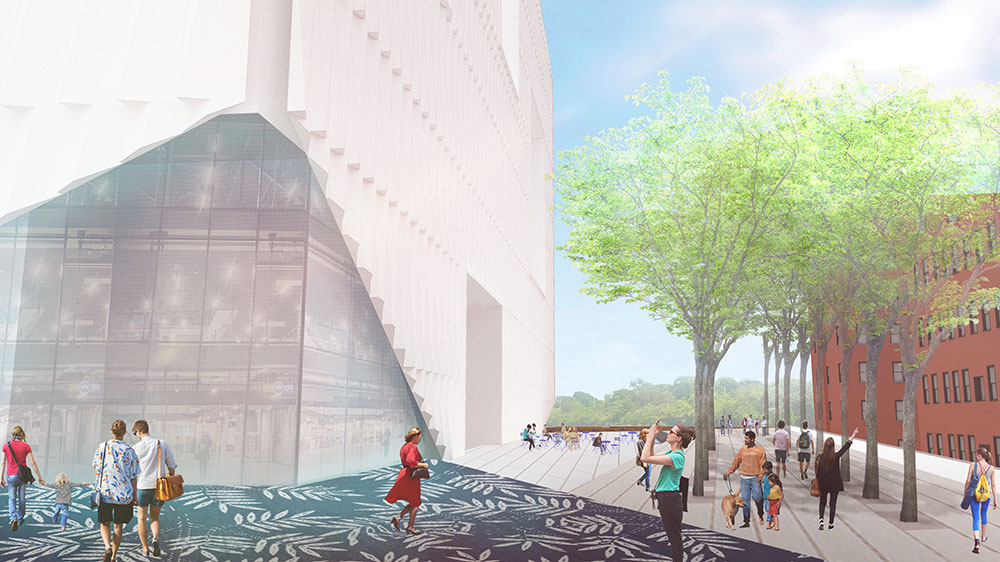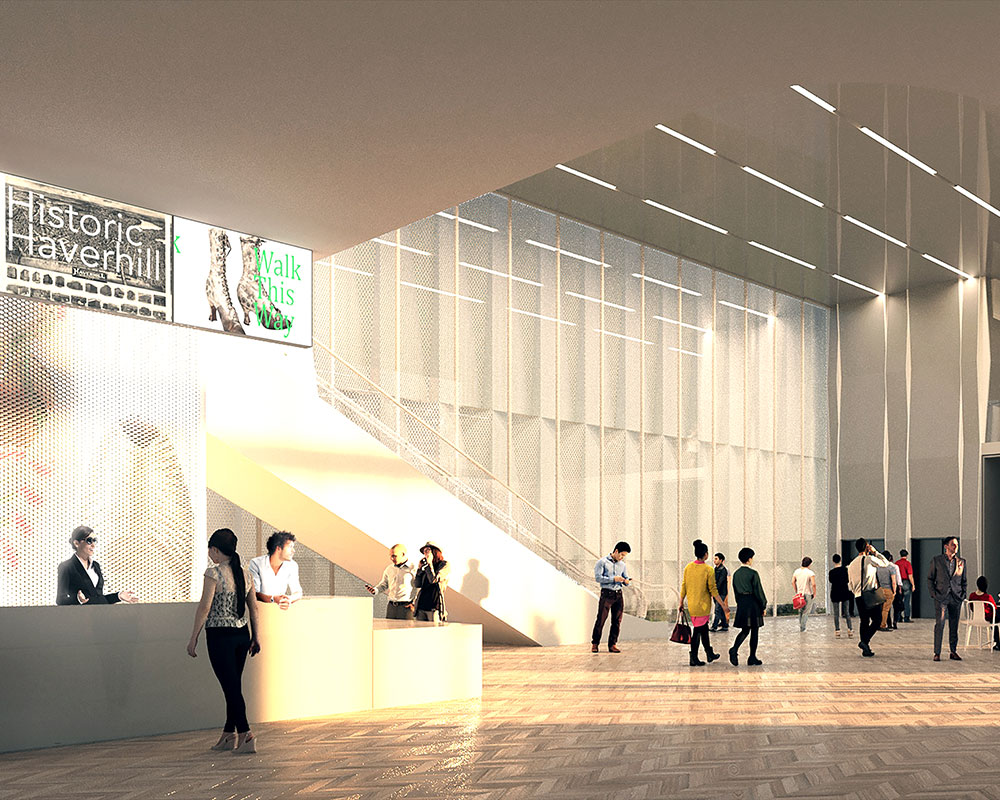An eight-story shoe museum with a café, theater, museum store, restaurant and other elements is being proposed for land adjacent to the post office in Washington Square.
The city’s recent invitation for proposals for “cultural or innovative use” for the property—reported first by WHAV Dec. 11—now appears to have been tailored to Stuart Weitzman, a world-renowned shoe-maker whose family owned a Haverhill shoe shop. Although bids were to have been opened publicly Tuesday, WHAV’s request for the bidders’ names was held until today for an announcement by Mayor James J. Fiorentini. As it turns out, the Weitzman Institute, formed in 2018 with an address of 2 Merrimack St., third floor, was the only bidder.
“This represents an incredible opportunity for the city of Haverhill,” Fiorentini said. “For the past two years we have been working with Stuart Weitzman and the Weitzman Initiative on their plan to establish a state-of-the-art museum in downtown Haverhill, which would feature the internationally renowned Weitzman shoe collection as well as a cultural center, public gathering spaces and a restaurant along the waterfront.”
After WHAV’s story appeared, a number of city councilors noted they had not declared the 12 Washington Square property as “surplus,” a required step before it may be developed. The lot currently is used for parking and the Merrimack Valley Regional Transit Authority’s downtown bus terminal.
The mayor’s statement acknowledges the bus station and notes the city will work with MVRTA to find a suitable new site in or near downtown for the bus station, should the project become a reality.
“The city has leased the 34,000-square-foot property on the banks of the Merrimack River to the Merrimack Valley Regional Transit Authority for a bus terminal and parking lot for about 30 years,” the mayor said.
The developer is proposing 50 parking spaces.
The mayor noted Weitzman has designed footwear for Beyonce and Taylor Swift and began his career designing shoes in Haverhill for his father’s company “Seymour’s Shoes” in the 1960s. Seymour Weitzman open his Haverhill shoe shop in the 1950s.
Mayor Fiorentini stressed the proposal is still in its infancy and must clear several hurdles.
“We’re thankful for the opportunity to work with the Weitzman Institute to see if we can bring this to fruition,” the mayor said. “But I want to caution people that there’s still a long way to go.”
The Weitzman Institute is a non-profit with an address of 2 Merrimack St., third floor. It lists a variety of Haverhill residents and local business people including President Francis Bevilacqua, Vice President Penelope Guerruro Perez, founder Michael Drossos and clerk Jenny Arndt—a local artist and campaign director for a Haverhill literacy initiative. Local architect Matthew Juros, Greater Haverhill Chamber of Commerce President Dougan Sherwood and Benjamin Consoli of BC Media Productions are among those listed as directors of the institute.
Among its assets, the development team lists professionals in design, landscaping, engineering, permitting, legal, marketing and finance.
The proposal says Stuart Weitzman has committed his sizable antique shoe collection to seed the museum’s permanent collection. Weitzman’s collection includes 300 pairs of shoes, ranging from sandals from the Ottoman Empire to Weitzman’s own iconic 50/50 boots, the proposal said.
The Weitzman proposal includes four key programmatic elements: a museum, multi-purpose theater, educational institution and large public gathering space. A café, museum store, restaurant and maker-space are also planned. The proposal includes a new 50-space parking lot. The main building would be eight stories, according to the proposal.
The theater would offer “a flexible and dynamic space that would house a wide variety of performance and events” and the public space would provide the city with “a much-needed dynamic gathering space in the heart of downtown.”
The group’s market analysis predicts the venue would attract visitors from six Massachusetts counties, the Boston metro area and large cities in southern New Hampshire.
The proposal envisions a potential sale of the property in June 2020, with construction beginning in 2022 and the museum opening in fall 2025.

Proposed exterior. (Courtesy rendering.)

